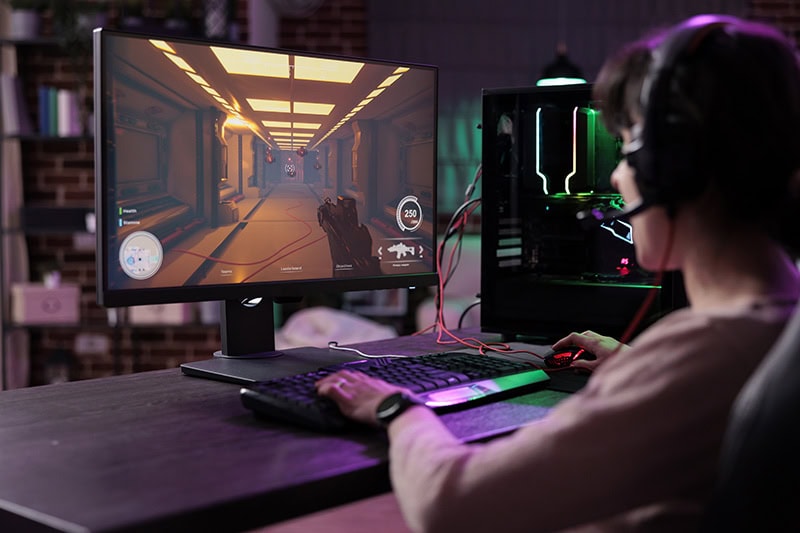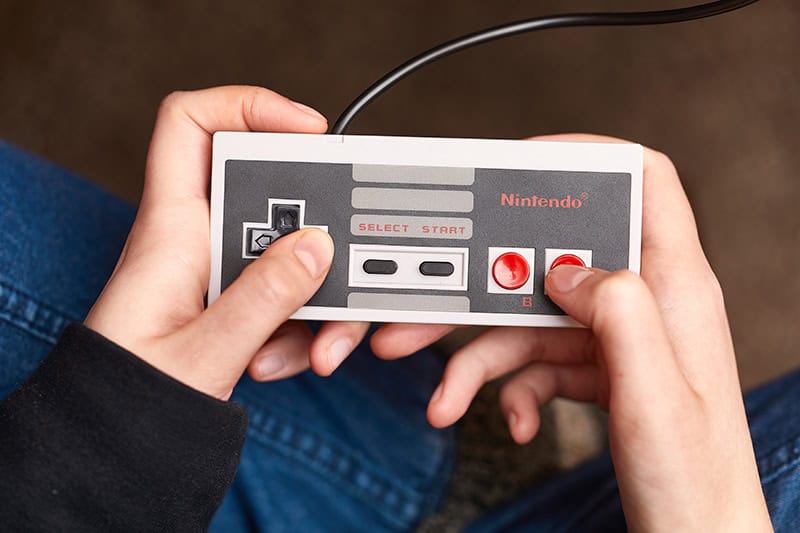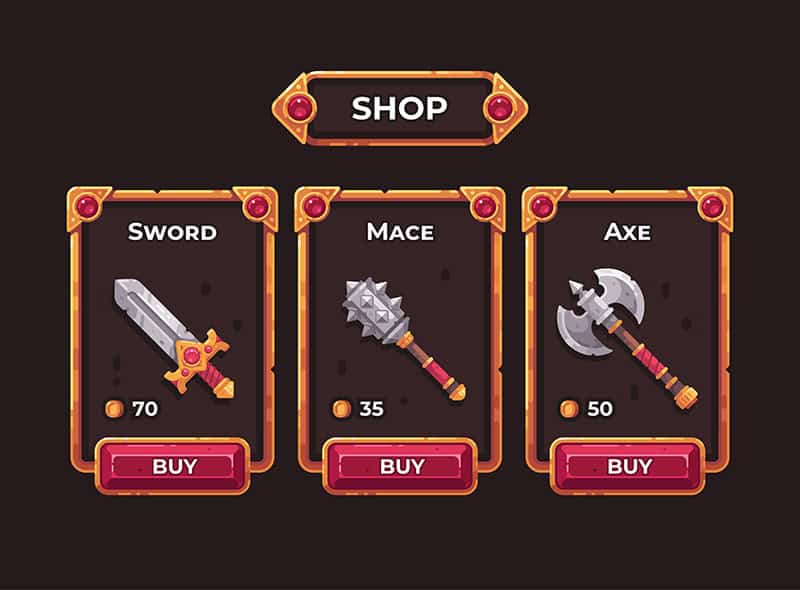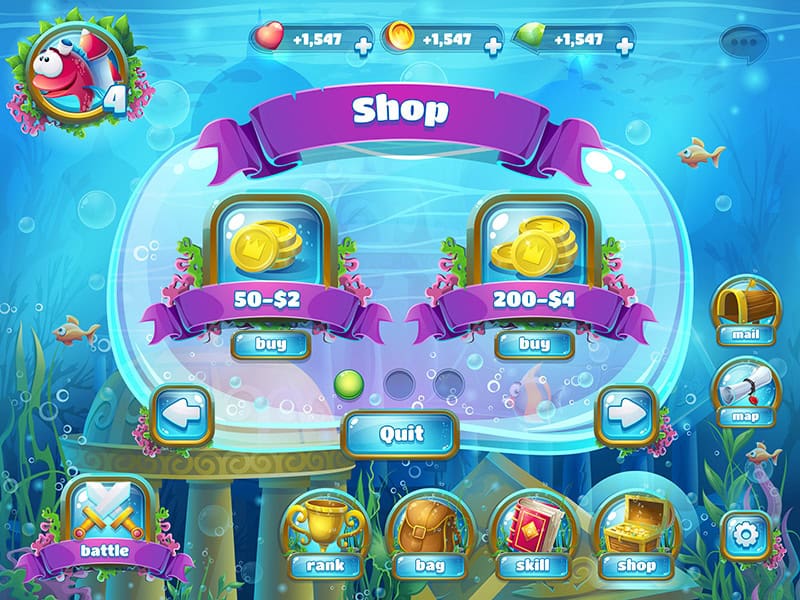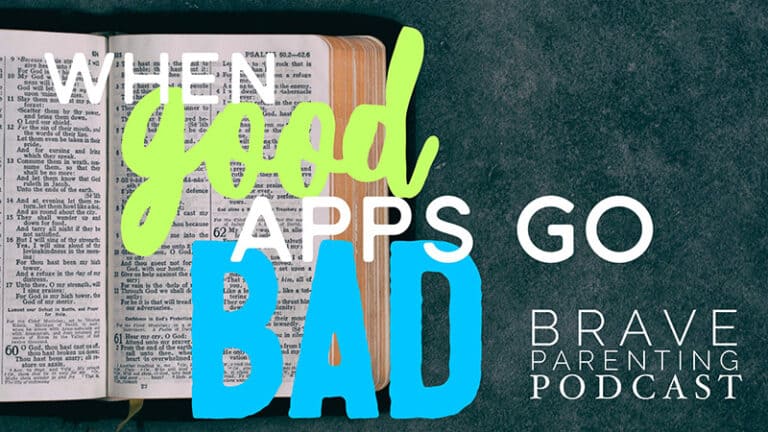There is a reason so many of us hesitate to draw hard lines around video games in our homes. We remember the joy of our childhood games of stacking falling blocks in Tetris, chomping ghosts in Pac-Man, bouncing on Bowser’s head in Super Mario Bros., or maybe even crushing it in Wii Tennis. It was lighthearted, innocent fun.
But we cannot afford to view today’s gaming industry through a 1980 to 2000s lens. Video games have radically changed. What was once a harmless hobby has evolved into a high-powered, psychologically manipulative, and profit-driven digital experience that shapes identity, morality, and behavior.
If we, as Christian parents, do not update our perspective, we risk allowing too much, too soon, under the illusion that it is “just a game.” So let’s look closely at what has changed and why we need to be more vigilant than ever.
No Longer About ‘Beating the Game’
Remember the satisfaction of completing a game? Whether it was saving the princess, seeing the credits roll, or beating your high score—it was an experience that ended.
Today’s games do not end.
Modern titles like Fortnite, Roblox, and Call of Duty Warzone are engineered to go on forever. There is no final level. No climactic victory. Instead, they operate in “seasons” with new content, limited-time events, and endless “battle passes.” The point is not to win – it is to keep coming back.
Games today encourage daily logins, streak bonuses, time-sensitive challenges, and FOMO-fueled live events. The goal is maximum engagement, and if users are entertained in the process, even better. And it works. Kids log hours each day not necessarily because they are having fun—but because they do not want to fall behind.
If we really stop and think about it – is this our kids playing the game? Or the game playing them?
The Business Model of Endless Monetization
In the past, you bought a game once, and that was it. However, companies like Epic Games (creators of Fortnite) realized early on that selling cosmetic items (skins, dances, emotes) was far more profitable than selling the game itself. That realization changed the entire industry.
Today, many of the most popular games are free to download—but packed with microtransactions ($1 here, $1 there). Game makers make all their profit from these purchases when they make the game free to play.
Want your character to wear a cool outfit? That will cost real money.
Do you want them to dance? It’s not my credit card on file.
Want a chance at a rare item? Buy a loot box—maybe you will win, maybe you won’t.
This is not just gameplay – this is gambling. Wrapped in bright colors and cartoon skins, but still gambling.
Parents, it’s so important to recognize the business model aspect of games: Games are no longer created to be played; they are created to be monetized.
And our kids are both the customers and the product.
Meaningless Grinding
“Grinding” is the practice of repeating the same in-game task over and over to earn a reward. Collect 100 tokens. Win 10 matches. Log in every day for a week.
It sounds like an innocent time-sink, but it is deeply manipulative.
Grinding builds psychological dependency. The longer you work toward a reward, the more valuable it seems. And once you earn it there is always another goal just out of reach. It is the same logic that keeps people pulling the lever on the slot machines (except there are no levers anymore, only digital touchscreens. Which, as we know, are equally as addictive).
It is behavioral conditioning that inevitably leads to gambling-like addiction. And, at our last check, it is still illegal for minors to gamble in the U.S. (With the bizarre exception of no age restriction on Bingo in New Mexico).
Chances are you cannot get your kid to grind away at their chores like they do in a game. Would you psychologically manipulate them or condition their behavior so they serve your bottom line of a clean and orderly home?
Yeah, we didn’t think so. But this is exactly what games today are designed to do.
The New Social Media
There was a time when “playing video games with friends” meant crowding around the TV in your friend’s living room. If you were super intense, you might have had your friends bring their computers over for a LAN (Local Area Network) party. Today, gaming is a physically solitary act with built-in online social features.
Gaming “influencers” or “streamers” have set the stage for how to play: sitting alone in a room, typically in the dark, headset on, energy drinks within arms reach, staring at the illuminated screens. Kids, naturally impressionable and easily influenced, seek to mimic their environment in the hope they can mimic their success.
Through the headsets and live in-game chats, kids form relationships with people they have never met. These parasocial relationships can feel meaningful and real, but, like social media connections, they are shallow imitations of real-life friendships.
Ostensibly, video gaming is now a form of social media. Consider the similarities:
- Persuasive algorithms drive maximum engagement.
- Data collection and analyzation
- Direct messaging with strangers.
- Proffers virtual vanity.
- Allows the sharing of user-generated content.
- Promotes competition and comparisons.
- Provides access to pornography.
- Convinces users that they have real community.
- Glorifies immorality, violence, and self-aggrandizement.
As you can see, video games are not just innocent play anymore. They are virtual realities that do more to confuse and isolate children than they help them socialize and remain safe.
Rethinking Gaming
Gaming itself is not inherently sinful; like all forms of entertainment, it can be used for good or for evil. However, today’s games are fundamentally different than those of past decades. They are designed to maximize engagement, perpetuate psychological dependence and addiction, and even morally desensitize players.
If we don’t shift our perspective and take an active role in setting boundaries for gaming, we risk losing more than just time. We risk losing hearts, minds, and souls to an industry prioritizing profit over human purpose, addiction over freedom, and virtual identity over true identity in Christ.
If parents do not intentionally disciple their kids, the gaming world gladly will. Even with intentional discipleship, online gaming never stops, so they are countering your discipleship at all times.
Now that you Know…What You Can Do:
Choosing to forgo today’s online video games completely is a wise option. Neither you nor your children will miss out on learning special skills or having unique experiences.
However, if you or your children enjoy playing and you are committed to doing so in a God-honoring way, there are proactive steps to achieve neutral gameplay.
1. Prioritize In-Person Gaming
Any multiplayer gameplay is with people in real life. As in, literally in the same room so that you can see them, high-five them, and even smell them (especially if they’re an adolescent boy). Isolation is a real threat among gamers that must be guarded against early and often.
*A healthy media standard includes restricting any video game consoles or play in bedrooms or behind closed doors. Gaming is in a public space of the home.
2. Eliminate Online Gaming
Online multiplayer games are engineered to be immersive and manipulative. In-game chats with strangers can expose kids to bullying, predation, drugs, and every worldly ideology. Restricting them removes an entire layer of risk, temptation, and exposure.
*A healthy media standard holds that no gaming consoles are connected to the internet, no gaming apps can be downloaded without parental approval, and PCs are in public spaces of the home where the screen can be co-viewed. (Indeed, a savvy child could get around all of these if they are determined enough. This is why your media standard is best paired with discipleship.)
3. Pre-Screen Every Game
Even if you are not a “gamer,” preview the game your child wants to play. Look up reviews. Watch gameplay videos on Twitch or YouTube. Ask questions: What language is used? Is there excessive violence? What is the point of the game?
*A healthy media standard establishes a pattern of researching new games together. With your child, read the reviews and watch the gameplay videos. Through this, they can witness how you discern the value of the content and, ultimately, make the decision whether it is allowed or not.
4. Discern the Worldview
Every game teaches something, whether it is about power, success, identity, and morality. Does this game glorify God? Or does it glorify rebellion, lust, greed, or chaos? Is criminalized activity normalized or celebrated? If it contradicts your family’s values—why allow it in your home?
*A healthy media standard holds fast to the family’s values in both the content of media and how much time is spent.
5. Avoid Life-Simulator Games
Games that let players “live another life”—like The Sims, Animal Crossing, or Second Life—can be especially deceptive. Real life is a gift from God, no matter how imperfect it is. God does not intend for us to live a fantasy life through games. Living, loving, and investing in the real world will bring a greater reward than any simulation.
* A healthy media standard prioritizes real-life, in-person activities, fellowship, and work/service. Gaming is only one form of leisure activity – not a way of life.
When we cut out or cut back video gaming, we are not depriving our kids of a necessary rite of passage. We are discipling them in the knowledge and instruction of the Lord. We invite them into something richer and more meaningful: identity, joy, and purpose in Jesus Christ. (Because none of those can be found in video games.)
Additional Resources:
Brave Parenting Guides:
Minecraft
Fortnite (Also, the article: The Problems With Fortnite)
Roblox
Among Us
Steam
Discord
Minno
Chik-fil-A Play
Podcasts:
Biblical View of Video Games
Are Online Video Games (Roblox) Any Different Than Social Media? (Video)
Hottest New Game: Marvel Rivals (Video)
Top Free Gaming Apps and What Parents Can Do Instead
Bible-Based Entertainment for Kids: Part 2 Apps
Content Control
Video Gaming: Addiction / Overuse / Abuse
Understanding Steam: Video Game Website/Application

